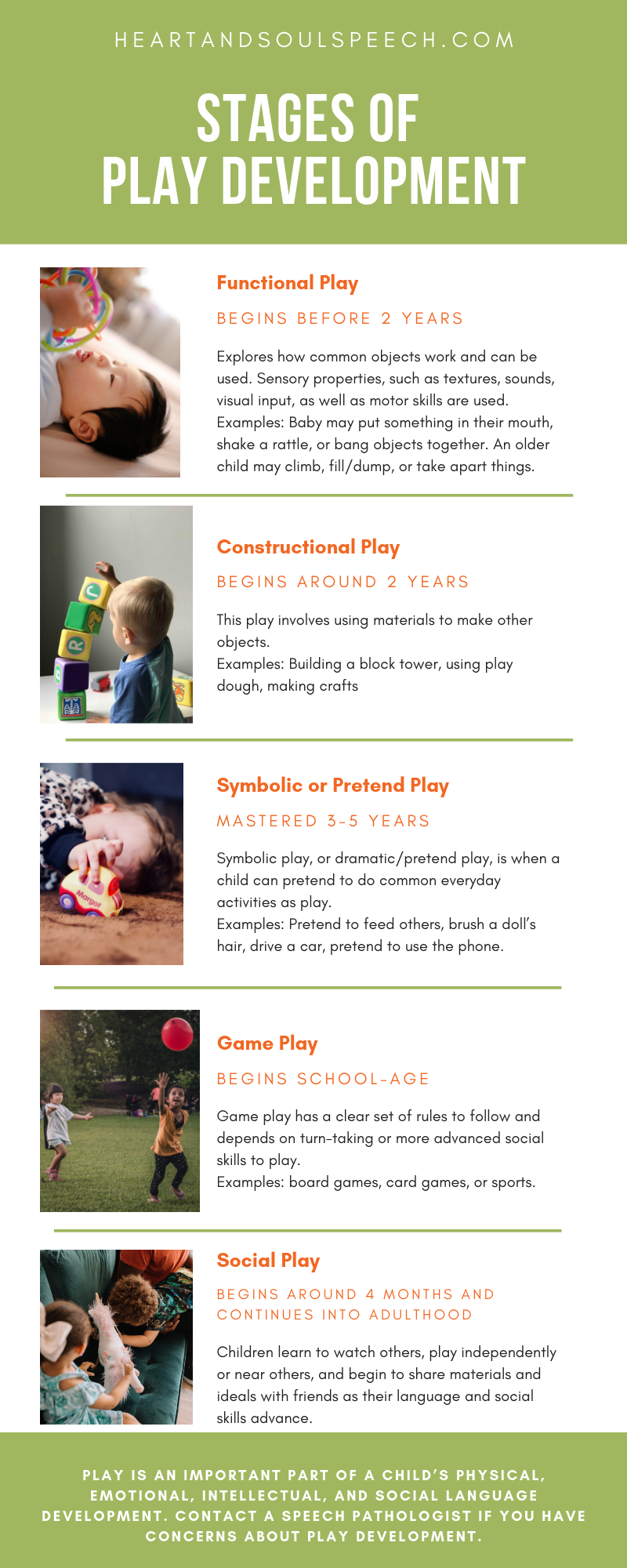We know play is an important part of a child’s physical, emotional, intellectual, and social language development. Play is fun, but it’s also how they learn about their world! Play development promotes language skills, social skills, and cognitive skills.
If you’re wondering why play is so important, read about it here!
Stages of Play Development
There are five stages of play development that children use to explore their environment and learn new skills through play. See the infographic below!

Types of Social Play
As mentioned above, social play develops in infancy, but continues into adulthood. There are also five types of social play:
| Type of Play | Description | Age | Examples |
| Onlooker Play | Watches others to learn | Begins under 1 year, but continues throughout childhood as skills advance | Baby watches as mom plays peek-a-boo
Older child watches a friend complete a puzzle |
| Solitary Play | Plays by themselves, may not notice others playing | Between 1-2 years | Stacks rings or plays blocks alone |
| Parallel Play | Plays near others, but does not interact yet | Between 2-3 years | Two children play with cars and make sounds next to each other or blow bubbles, but do not show interest in each other or share in play |
| Associative Play | Shares materials among friends, Plays with others sometimes | Between 3-4 years | Children work on craft activity in same area and talk about their separate creations. |
| Cooperative Play | Shares ideas and follow established rules
Prefers to play with others majority of the time *Children must have language & social skills to play at this level. |
4 years and beyond, mastered around 10-12 years | Children play “school” where one is the teacher and others are the student. |
(adapted from Westby Play Scale Checklist, 1980)
Children with Developmental Delays
Children with delayed language may need help developing their play skills. Typically play advances in the same stages, but may be at later ages. You may need to help your child explore their environment by touching and feeling objects, or by directing their attention to something more stimulating. Knowing the next stage of play is helpful to encourage your child’s play skills appropriately. A toddler playing alone may need guidance to play near others. Model how to “feed” the doll and put the doll to “bed.” If you have questions or concerns about your child’s play development, please contact a speech-language pathologist.
What stage of play is your child in? Leave a comment and let us know!
This is Part 2 of our Play Series. You can find the others here: Part 1: Why is Play Important? Part 3: Independent Play and Part 4:Pretend Play

3 Responses